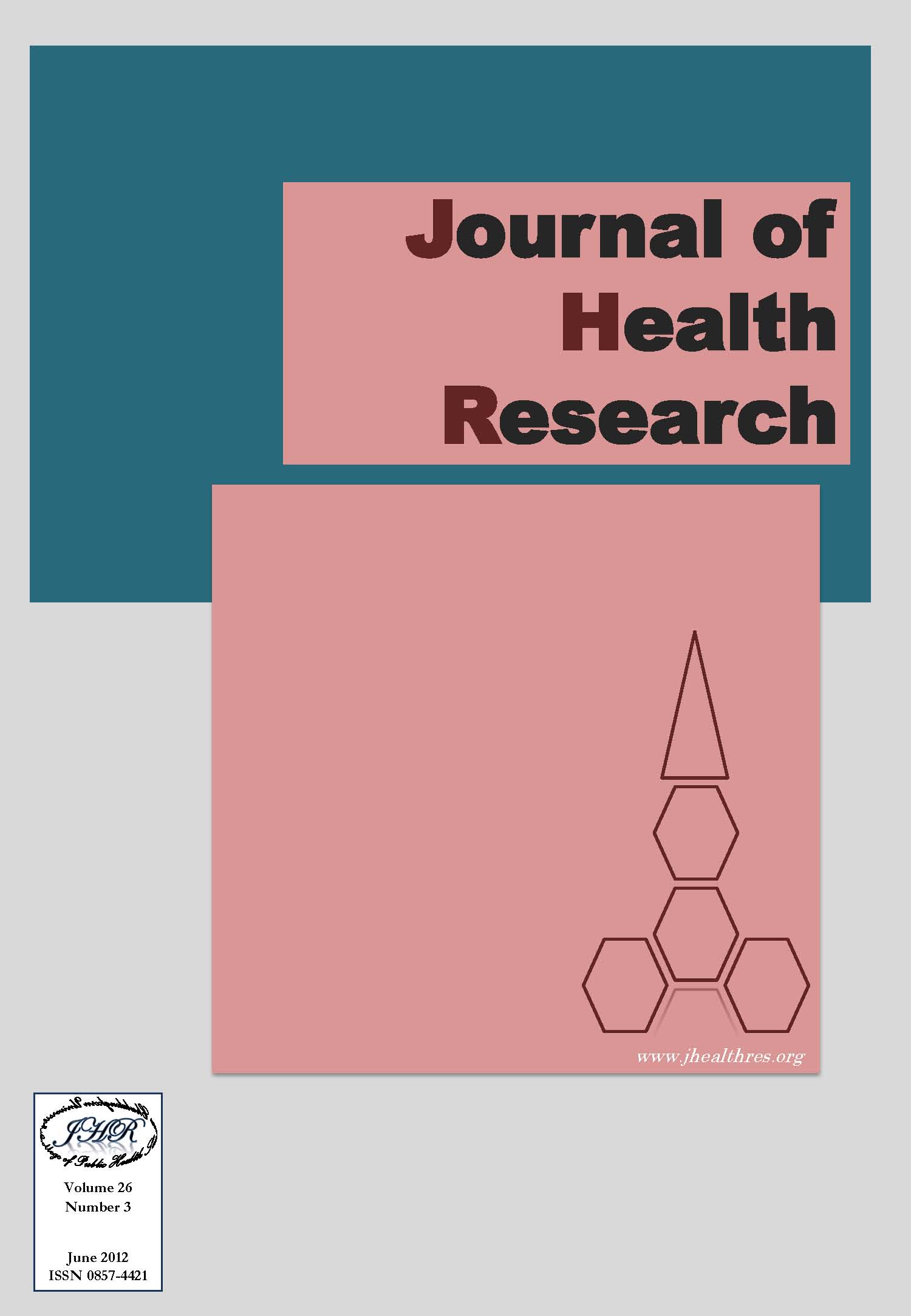Knowledge, Attitude, Practice and Eye Problems from Contact Lens Use in Students at Chulalongkorn University 2010
Keywords:
knowledge, attitude, practice, eye problems, contact lens, university studentsAbstract
The aim of this cross-sectional study was to assess knowledge about contact lens, attitude, practice and eye problems from contact lens use in students at Chulalongkorn University, Bangkok. Data were collected by using self-administered questionnaires. 340 participants were selected by convenience sampling technique, contact lenses users among students at Chulalongkorn University (CU). The result indicated that more than 70 % of respondents had high knowledge level about eye problems protection from contact lens. More than 80 % had knowledge about washing hand, sleeping and swimming with contact lenses can lead to an increased risk of eye infection. More than 75% of them had moderate attitude level about contact lens use and good practice level about the proper contact lens use and care. Most of them (71%) agree that wearing contact lenses make them look more beautiful. One-third of respondents used to rinse contact lenses with tap water and swim with contact lenses. More than a half used to sleep with contact lenses. 73.2% had high knowledge about eye problems protection from contact lens. 93.5% knew that washing hands thoroughly with soap and drying well every time before touching contact lenses can protect eye infection. 95.3% knew that sleeping while wearing contact lenses can lead to an increased risk of severe eye infection. 80.3% knew that they should not swimming while wearing contact lenses. 79.1% of them had a moderate attitude about contact use. Most of the respondents (70.9%) agree that wearing contact lenses make them look more beautiful. 77.1% had good practice about the proper contact lens use and care. It was found that 26.8% used to rinse contact lenses with tap water. 56.8% used to sleep when wearing contacts lenses. 95.3% never swap contact lenses with another person. 36.2% used to swim while wearing contact lenses. About 50% of respondents in this study had eye problems from contact lens use such as, (There were many eye problems from contact lens use in this study such as) red eye, discomfort, pain, dry eye, blurred vision, light phobia, infection, many tear and discharge. Furthermore, the knowledge level was associated with hometown living, monthly income and field of studies (p<0.05). The practice level was associated with sex, age, study level and monthly income (p<0.05). Knowledge and practice score regarding to eye problem protection from contact lens had a positive correlation (correlation coefficient of 0.316). In addition, knowledge score had a statistically significant correlation with practice score (p<0.001). This study proposed recommendations and guidelines to control and reduce eye problems from contact lens use.






